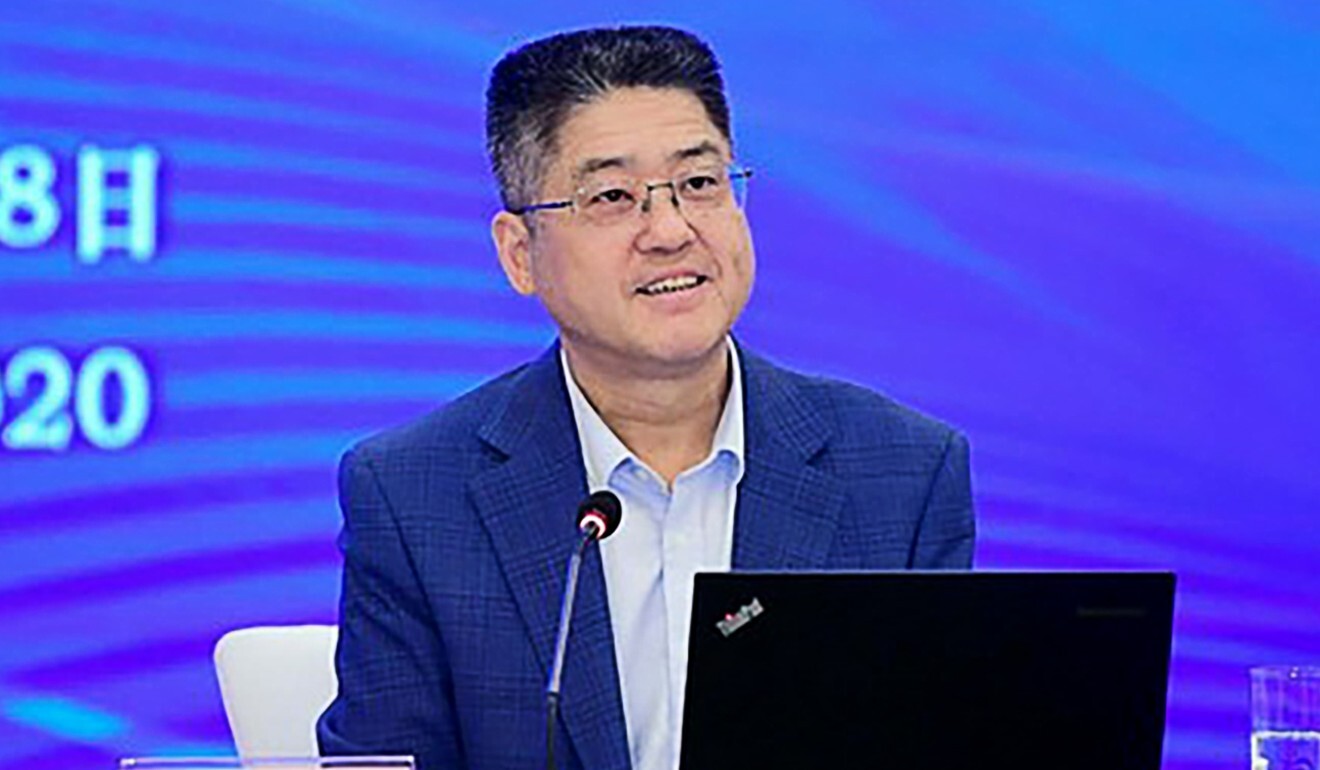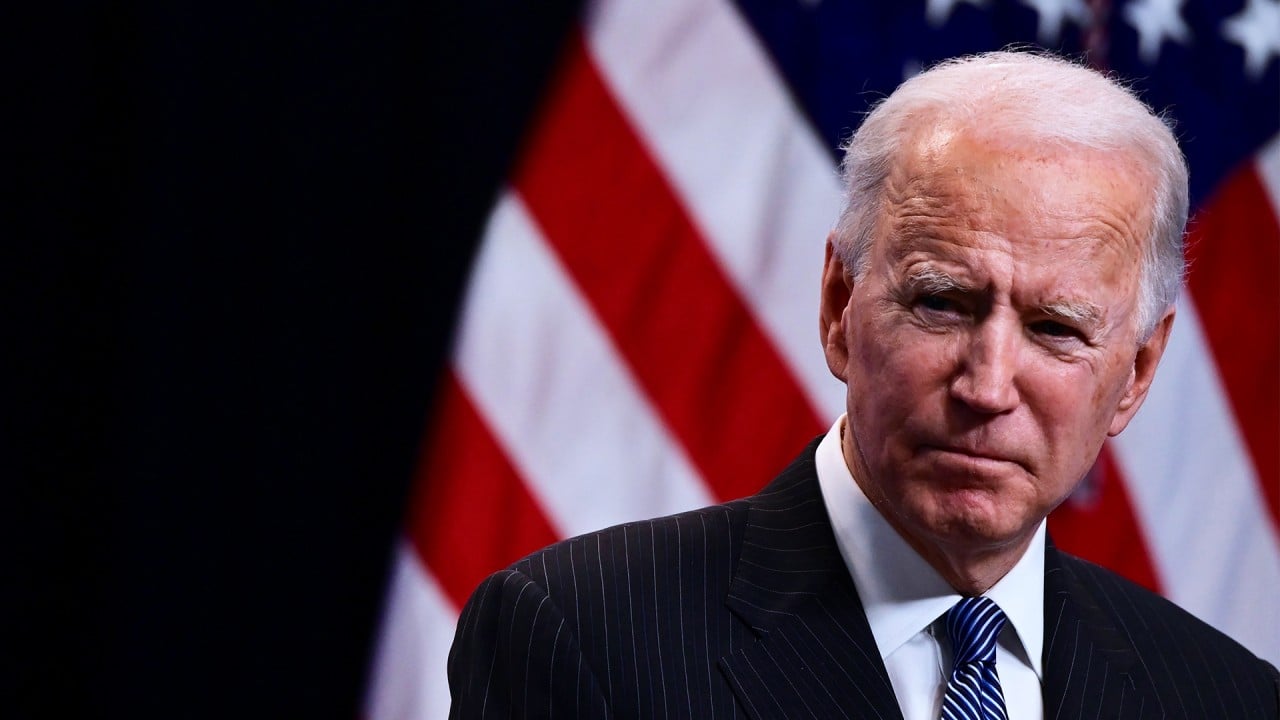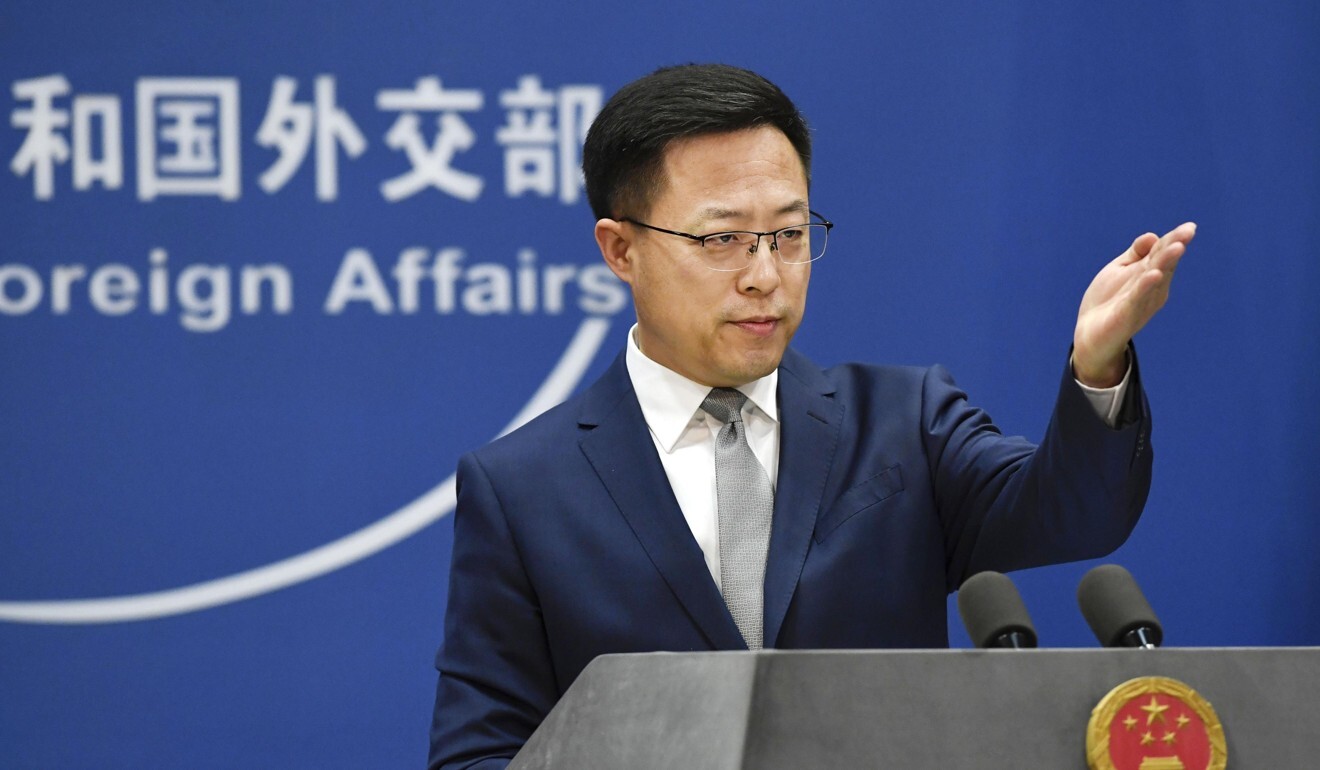
Top Chinese diplomat calls Trump’s China policy ‘utter failure’, says US must repair relations with Beijing
- Le Yucheng, vice-minister of foreign affairs, takes aim at the Trump administration’s handling of the pandemic
- Le also says Washington and Beijing can use Covid-19 and climate change as ‘priority areas’ for cooperation
China’s vice-minister of foreign affairs, Le Yucheng, called Thursday for Washington to take immediate action to repair its relations with Beijing, while assailing the now-departed Trump administration for pursuing a China policy that proved to be an “utter failure”.
Speaking in English, Le said on Thursday during a panel organised by the state-run media outlet China Daily that the two superpowers’ relationship should not be defined by “competition”.
He also criticised former US president Donald Trump and his administration’s handling of the coronavirus pandemic, which he said brought about the “worst setback in the past 40 years” for the two countries’ relations.
“Had the Trump administration chosen science and cooperation over scapegoating and political games, how many lives could have been saved?” Le said.
“Misguided China policy over the past four years has proven to be an utter failure.”

The senior diplomat’s comments were the most extensive and candid to date by a top Chinese official about Trump and his administration, now that they have been replaced by Joe Biden and his incoming administration.
Le said he was “impressed” by President Biden’s appeal for unity during his inauguration speech, adding that this same spirit should drive US-China relations going forward.
Le has generally been a moderate voice among Beijing’s diplomatic corps. He was the first to make an overture to the US after its contentious 2020 presidential election, stressing the opportunities for cooperation, and has written long commentaries in state-run media calling for US-China security dialogue to prevent relations between the countries from spiralling out of control.
On Thursday, Le said that the US and China could use Covid-19 and climate change as “priority areas” for cooperation, echoing aspects of Biden’s stated China strategy, which observers say will be more balanced, if not less aggressive, than Trump’s.
“The only thing China asks of the United States … is to quit this obsession with splitting and changing China,” Le said, maintaining Beijing’s stance that the US-led international condemnation of human rights abuses in Xinjiang and Hong Kong is driven by an agenda to support separatist causes in these territories.

01:04
Biden to approach US-China relations with ‘patience’, says White House
Le recalled that US-China relations had enjoyed successful periods of cooperation, citing joint efforts to combat the threat of terrorism after the 9/11 attacks; the aftermath of the 2008 global financial crisis; the 2014 Ebola epidemic; and the drafting of the 2016 Paris Agreement on climate change.
“China and the United States can work to avoid the so-called Thucydides trap,” Le said.
Le’s reference was to the issue raised in the 2017 book, Destined for War: Can America and China Escape Thucydides’ Trap? by Harvard political scientist Graham Allison, which cited the quandary named after the ancient Greek historian concerning the likelihood of armed conflict when a rising power challenges a ruling power.
Destined for conflict? Xi Jinping, Donald Trump and the Thucydides trap
While observers generally agree that an all-out war between the nuclear-armed nations is improbable, risks of limited military conflicts remain.
Chinese President Xi Jinping has shown interest in the Thucydides trap concept, referring to it on at least three occasions, including just ahead of Trump’s inauguration as president four years ago.
Le’s softer tone has contrasted with the more aggressive rhetoric of Le’s colleagues, such as foreign ministry spokespersons Zhao Lijian and Hua Chunying, both of whom have come to represent Beijing’s “Wolf Warrior” brand of diplomacy.

Despite Le’s call for cooperation on Thursday, for example, Zhao struck a different note at his ministry’s daily press briefing, responding to a question about whether climate change could be one area of US-China cooperation: “China-US cooperation in specific areas is not just ‘a flower in a greenhouse’.
“It is bound to be closely related to the totality of China-US relations … No one should expect to wantonly interfere in China’s internal affairs, hurt China’s interests, all while demanding China’s support in bilateral and global affairs.”
Le has generally been more open to interviews with non-Chinese outlets over his career than his colleagues in the foreign ministry. Last year, he gave an exclusive interview to US broadcaster NBC last year on China‘s response to the coronavirus pandemic and the criticism it has received for early mishaps during the outbreak in Wuhan.
In Thursday’s speech, Le cited the legacies of former US secretary of state Henry Kissinger, a key agent in the normalisation of US-China relations in the 1970s, and the China scholar Ezra Vogel, who died last month.
He called them two American “visionaries” who offered hope for US-China relations at this current “low point”.

